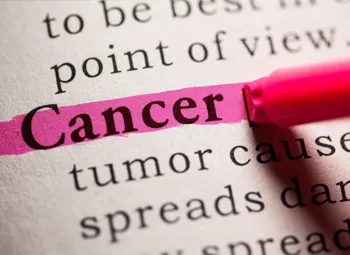
Cancer still ranks as one of the top causes of death worldwide, even so, effective screening programs make it possible to detect it early enough hence lowering the burden of such disease considerably. Some nations have developed models in managing it through screening which have seen them achieve much towards diagnosing this ailment early and treating it. This blog examines the finest practices in tumor testing and prior recognition around the globe, with effective methods that can be exemplary for different countries.
The Importance of Cancer Screening
The subject matter here is how cancer screening can be done for a person who seems healthy or normal but may have cancer anyway before they feel sick. If found early, cancer can be treated successfully while maintaining survival chances and reducing costs on healthcare. There is evidence to prove that screening services do work especially in populations with high prevalence rates e.g., breast, cervix, colon, and lung cancer screenings.Best Practices from Different Countries
1. United States: Comprehensive Screening Programs
The United States has a robust cancer screening infrastructure supported by organizations like the American Cancer Society and the Centers for Disease Control and Prevention (CDC). Key practices include:
⦁ Mammography for Breast Cancer:
Recommended annually for women aged 45-54 and biennially for women 55 and older.
⦁ Pap Smear and HPV Testing for Cervical Cancer:Regular screenings start at age 21 and continue every three years.
⦁ Colonoscopy for Colorectal Cancer:
Suggested every ten years beginning at age 45.
2. United Kingdom: National Health Service (NHS) Screening Programs
The UK's NHS provides organized screening programs that are free at the point of use, ensuring wide accessibility:
⦁ Breast Cancer Screening:
Women aged 50-70 are invited for mammograms every three years.
⦁ Cervical Screening:Women aged 25-64 are invited for a Pap test every three to five years.
⦁ Bowel Cancer Screening:
A fecal immunochemical test (FIT) is offered every two years to people aged 60-74.
3. Japan: Public Health Initiatives
Japan emphasizes the importance of gastric cancer screening due to its high prevalence:
⦁ Gastric Cancer:Endoscopic screening is recommended for individuals over 50.
⦁ Lung Cancer:
Low-dose CT scans are used for high-risk individuals, such as heavy smokers.
4. Australia: Population-Based Screening
Australia has implemented successful population-based screening programs:
⦁ National Bowel Cancer Screening Program:Provides free fecal occult blood tests (FOBT) every two years for people aged 50-74.
⦁ BreastScreen Australia:
Offers free mammograms every two years for women aged 50-74.
⦁ Cervical Screening Program:
Transitioned to HPV testing every five years for women aged 25-74.

Key Elements of Effective Screening Programs
⦁ Accessibility and CoverageEnsuring that screening programs are accessible to all eligible individuals is crucial. This includes providing free or low-cost screening services and targeting underserved populations.
⦁ Public Awareness and Education
Early detection saves lives, Join screening programs through media campaigns and community outreach led by healthcare providers.
⦁ Regular Updates and Quality Assurance
Screening guidelines should be regularly updated based on the latest research and technological advancements. Quality assurance measures, such as training for healthcare providers and maintaining high standards for screening procedures, ensure the effectiveness of the programs.
⦁ Integration with Healthcare Systems
Screening programs should be integrated with broader healthcare systems to facilitate follow-up care and treatment. This includes having a streamlined referral process for individuals with positive screening results.
Conclusion
Maintaining cancer screening and early detection act as important constituents in the strategies for cancer control worldwide. Countries can better their screening initiatives, lift early detection rates as well as reduce the burden of cancer by studying and adopting success stories from good programs. Such a global network for cancer prevention and care will only be made more effective through combined screening approaches and perpetually devising new ways.According to the doctors, governments, healthcare providers, and individuals should focus on cancer screening and early detection. We believe that by participating in regular screenings along with supporting public health initiatives, we will be able to progress towards a future where there are fewer cases or deaths caused by cancer.